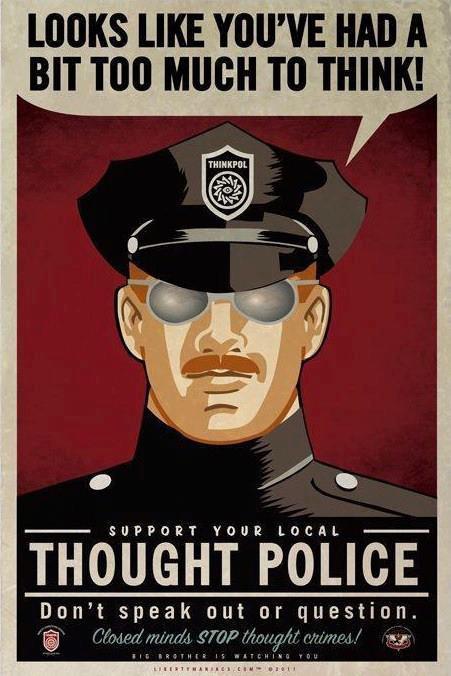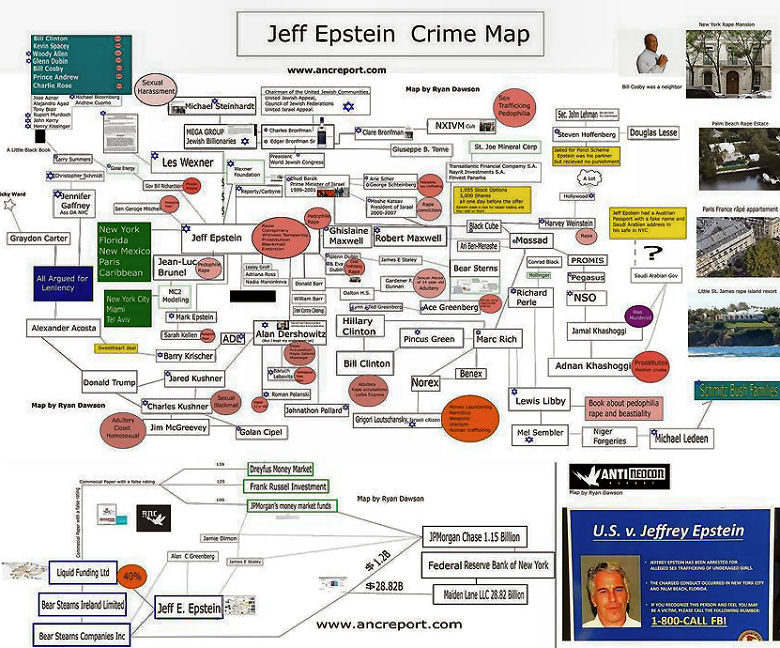
|


During the
Dutch Golden
Age, spanning 1588 to 1672, Dutch trade, science, art and military are
among the most acclaimed globally.
During this expansion and decline
recorded property crimes increased.
From 1600
1⁄5 of the women of Haarlem committed property
crimes.
This rose to 2⁄3 from 1700 to
nearly 4⁄5 from 1800.
1680s In Haarlem women committed nearly as many crimes as men.
Female thieves claim they had been driven to crime by penury,
consistent with decline of the textile industry due to the 80 year Dutch war of
independence.
Traditional ideas of communal offense coexist with Roman
civil law courts.
Court records of Leiden, Netherlands note moral
offenses include adultery, fornication, homosexuality, prostitution, swearing
and singing dirty songs.
From 1540 to 1800 948 communal offenses appear
in Leiden court records with adultery and fornication 627 cases or two cases
per year average.
4 cases per year involving communal offenses/moral
turpitude - 10% of all crime committed over 260 years - 90 % are property
crimes.
Written records of interrogations of criminal suspects in
Leiden between 1678 and 1794 form the basis of an analysis of offense patterns.
Data was gathered on the name, age, sex, birthplace, address, marital
status, children, occupation, spouse's occupation, location and nature of the
offense, prior offenses, disposition, and related information revealed that
male suspects were involved in 1,266 cases and female suspects in 1,012 cases.
The men were accused of 1,638 crimes and the women of 1,198 crimes.
Men were more likely than women to be involved in public order
offenses, but only small differences were found in property offenses.
Women tended to commit crime alone, whereas men tended to act in gangs.
Furthermore, short prison sentences were usually given in cases
involving violence, drunkenness, and other offenses; 299 men and 188 women were
flogged,
branded, or physically
punished in another way.
Some men received death
sentences after a long series of property crimes.

1782
Jean-Paul Marat, inspired
by Rousseau and Cesare Beccaria, publishes a polemic for penal reform Plan
de législation criminelle at a competition backed by Frederick the
Great and Voltaire.
Marat's entry contains radical ideas:
society should provide fundamental natural needs, such as food and
shelter, if it expected all its citizens to follow civil laws;
the King
was no greater than the "first magistrate" of his people;
that there
should be a common death penalty regardless of class;
each town should
have a dedicated "avocat des pauvres" and set up independent criminal
tribunals with 12-man juries to ensure
fair trials.
July 17, 1793
Charlotte Corday, a Girondin
sympathiser, who came from an impoverished royalist family is guillotined for
Marat's murder.
During Charlotte Corday four-day trial, she testified
that she had carried out the assassination alone, saying "I killed one man to
save 100,000."
After Marat's death, he was viewed by many as a martyr
for the revolution, and is immortalized in various ways to preserve the values
he stood for.
His heart was embalmed separately and placed in an urn in
an altar erected to his memory at the Cordeliers

Corpus Delicti
"For a crime to
exist, there must be an injured party (Corpus Delicti) There can be
no sanction or penalty
imposed on one because of this Constitutional right." Sherer v. Cullen 481
F. 945: "With no injured party, a complaint is invalid on its face". Gibson v.
Boyle, 139 Ariz. 512
Supreme courts ruled "Without Corpus delicti there
can be no crime""In every prosecution for crime it is necessary to establish
the "corpus delecti", i.e., the body or elements of the ¢rime." People v.
Lopez, 62 Ca.Rptr. 47, 254 C.A.2d 185.
"In every criminal trial, the
prosecution must prove the corpus delecti, or the body of the crime
itself-i.e., the fact of injury, loss or harm,
and the existence of a criminal agency as its cause. " People v. Sapp, 73 P.3d
433, 467 (Cal. 2003) [quoting People v. Alvarez, (2002) 27 Cal.4th 1161,
1168-1169, 119 Cal.Rptr.2d 903, 46 P.3d 372.].
"As a general principal,
standing to invoke the judicial process requires an actual justiciable
controversy as to which the complainant has a real interest in the ultimate
adjudication because he or she has either suffered or is about to suffer an
injury. " People v. Superior Court, 126 Cal.Rptr.2d 793.
"Without
standing, there is no actual or justiciable controversy, and courts will not
entertain such cases. (3 Witlen, Cal. Procedure (3rd ed. 1985) Actions §
44, pp 70-72.) "Typically, … the standing inquiry requires careful
judicial examination of a complaint's allegations to ascertain whether the
particular plaintiff is entitled to an adjudication of the particular claims
asserted. " (Allen v. Wright, (1984) 468 U.S. 737, 752…Whether one has
standing in a particular case generally revolved around the question whether
that person has rights that may suffer some injury, actual or threatened. "
Clifford S. v. Superior Court, 45 Cal.Rptr.2d 333, 335.
There are seven
elements of jurisdiction and every element MUST be met in order for the court
to proceed.
SEVEN ELEMENTS OF JURISDICTION:
1. The accused must
be properly identified, identified in such a fashion there is no room for
mistaken identity. The individual must be singled out from all others;
otherwise, anyone could be subject to arrest and trial without benefit of
"wrong party" defense. Almost always, the means of identification is a person's
proper name, BUT ANY MEANS OF IDENTIFICATION IS EQUALLY VALID IF SAID MEANS
DIFFERENTIATES THE ACCUSED WITHOUT DOUBT. (There is no
constitutionally valid requirement you must identify yourself, see 4th
Amendment; also see, Brown vs. Texas, 443 US 47 and Kolender v. Lawson 461 US
352.)
2. The statute of offense must be identified by its proper or
common name. A number is insufficient. Today, a citizen may stand in jeopardy
of criminal sanctions for alleged violation of statutes, regulations, or
even low-level bureaucratic orders
(example: colorado National Monument Superintendent's Orders regarding an
unleashed dog or a dog defecating on a trail). If a number were to be deemed
sufficient, government could bring new and different charges at any time by
alleging clerical error. For any act to be triable as an offense, it must be
declared to be a crime. Charges must meet the statutory definition of an
offense without exception.
3. The
acts of alleged offense must be described in non-prejudicial language and
detail so as to enable a person of average intelligence to understand nature of
charge (to enable preparation of defense); the actual act or acts constituting
the offense complained of. The charge must not be described by parroting the
statute; not by the language of same. The naming of the acts of the offense
describes a specific offense whereas the verbiage of a statute describes only a
general class of offense. Facts must be stated. Conclusions cannot be
considered in the determination of probable cause.
4. The accuser must
be named. He/she may be an officer or a third party, but some positively
identifiable person (human being) must accuse; some certain person must take
responsibility for the making of the accusation, not an agency or an
institution. This is the only valid means by which a citizen may begin to face
his accuser. Also, the injured party (corpus delicti) must make the accusation.
Hearsay evidence may not be provided. Anyone else testifying that they heard
that another party was injured does not qualify as
direct evidence.
5. The accusation must be made under
penalty of perjury. If perjury
cannot reach the accuser, there is no accusation.
Otherwise, anyone may
accuse another falsely without risk.
6. To
comply with the five elements above, that is for the accusation to be valid,
the accused must be accorded due process. Accuser must have complied with law,
procedure and form in bringing the charge. This includes court-determined
probable cause, summons and notice procedure. If
lawful process may be
abrogated in placing a citizen in jeopardy, then any means may be utilized
to deprive a man of his freedom, and all
dissent may be stifled by utilization of defective process.
"The
essential elements of due process are notice and an opportunity to defend.
"Simon v. Craft, 182 US 427. "one is not entitled to protection unless he has
reasonable cause to apprehend danger from a direct answer.
The mere assertion of a
privilege does not immunize him; the court must determine whether his
refusal is justified, and may require that he is mistaken in his refusal.
"Hoffman v. United States, 341 U.S. 479 (1951)
7. The court must be one
of competent jurisdiction. To have valid process, the tribunal must be a
creature of its constitution, in accord with the law of its creation, i.e.,
Article III judge. Lacking any of the seven elements or portions thereof,
(unless waived, intentionally or unintentionally) all designed to ensure
against further prosecution (double jeopardy); it is the defendant's duty to
inform the court of facts alleged for determination of sufficiency to support
conviction, should one be obtained. Otherwise, there is no lawful notice, and
charge must be dismissed for failure to state an offense. Without lawful
notice, there is no personal jurisdiction and all proceedings prior to filing
of a proper trial document in compliance with the seven elements is void. A
lawful act is always legal but many legal acts by government are often
unlawful. Most bureaucrats lack
elementary knowledge and
incentive to comply
with the mandates of constitutional due
process. They will make mistakes. Numbers beyond count have been convicted
without benefit of governmental adherence to these seven elements. Today,
informations are being filed and prosecuted by "accepted practice" rather than
due process of law.
Jurisdiction, once challenged,
is to be proven, not by the court, but by the party attempting to assert
jurisdiction. The burden of proof of jurisdiction lies with the asserter. The
court is only to rule on the sufficiency of the proof tendered. See, "McNutt
v. General Motors Acceptance
Corp, 298 U.S. 178 (1936). The origins of this doctrine of law may be
found in "MAXFIELD v. LEVY, 4 U.S. 330 (1797), 4 U.S. 330 (Dall.) 2 Dall. 381 2
U.S. 381 1 L.Ed. 424
 |
|
 
 |
This web site is not a commercial web site and
is presented for educational
purposes only.

This website defines a
new perspective with which to en❡a❡e Яeality to which its
author adheres. The author feels that the faλsification of reaλity
outside personal experience has forged a populace unable to
discern pr☠paganda
from reality and that this has been done purposefully by an international
corporate cartel through their agents who wish to foist a corrupt version of
reality on the human race. Religious intolerance occurs
when any group refuses to tolerate religi☯us practices, religi☸us
beliefs or persons due to their religi⚛us ide⚛l⚛gy. This web
site marks the founding of a system of philºsºphy nªmed the
Mŷsterŷ of the Lumière Infinie - a ra☨ional
gnos☨ic mys☨ery re☦igion based on reaso🐍 which
requires no leap of faith, accepts no tithes, has no supreme leader, no church
buildings and in which each and every individual is encouraged to develop a
pers∞nal relati∞n with Æ∞n through the pursuit of the
knowλedge of reaλity in the cu☮ing the spi☮itual
co☮☮uption that has enveloped the human spirit. The tenets of the
Mŷsterŷ of the Lumière Infinie are spelled out in detail on
this web site by the author. Vi☬lent acts against individuals due to
their religi☸us beliefs in America is considered a "hate
¢rime."
This web site in no way c☬nd☬nes
vi☬lence. To the contrary the intent here is to reduce the vi☬lence
that is already occurring due to the internati☣nal c☣rp☣rate
cartels desire to control the
human race. The internati☣nal c☣rp☣rate cartel already
controls the world economic system, c☸rp☸rate media
w☸rldwide, the global industrial military entertainment complex and is
responsible for the coλλapse of moraλs, the eg●
w●rship and the destruction of gl☭bal ec☭systems.
Civilization is based on coöperation. Coöperation with
bi☣hazards at the point of a
gun.
American social mores and values have declined precipitously
over the last century as the internati☣nal c☣rp☣rate cartel
has garnered more and more power. This power rests in the ability to deceive
the p☠pulace in general through c✡rp✡rate media by
press☟ng em☠ti☠nal butt☠ns which have been
πreπrogrammed into the πoπulation through prior mass media
psychological operations. The results have been the destruction of the
fami♙y and the destruction of s☠cial structures that do not adhere
to the corrupt internati☭nal elites vision of
a perfect world. Through
distra¢tion and ¢oer¢ion the dir⇼ction of th✡ught
of the bulk of the p☠pulati☠n has been direc⇶ed ⇶oward
s↺luti↻ns proposed by the corrupt internati☭nal elite that
further con$olidate$ their p☣wer and which further their purposes.
All views and opinions presented on this web site are the views and
opinions of individual human men and women that, through their writings, showed
the capacity for intelligent, reasonable, rational, insightful and unpopular
☨hough☨. All factual information presented on this web site is
believed to be true and accurate and is presented as originally presented in
print media which may or may not have originally presented the facts
truthfully. Øpinion and
☨hough☨s have been adapted, edited, corrected, redacted, combined,
added to, re-edited and re-corrected as nearly all opinion and
☨hough☨ has been throughout time but has been done so in the spirit
of the original writer with the intent of making his or her
☨hough☨s and opinions clearer and relevant to the reader in the
present time.
Fair Use Notice

This site may contain
copyrighted material the use of which has not always been specifically
authorized by the copyright owner. We are making such material available in our
efforts to advance understanding of criminal justice,
human rights,
political, e¢onomi¢, demo¢rati¢, s¢ientifi¢, and
social justice
iϩϩueϩ, et¢ We believe this constitutes a 'fair use' of
any such copyrighted material as provided for in section 107 of the US
Copyright Law. In accordance with Title 17 U.S.C. Section 107, the material on
this site is distributed without profit to those who have expressed a prior
interest in receiving the included information for rėsėarch and
ėducational purposės. For more information see:
www.law.cornell.edu/uscode/17/107.shtml. If you wish to use copyrighted
material from this site for purposes of your own that go beyond 'fair use', you
must obtain permission from the copyright owner. |
 Copyright
© Lawrence Turner Copyright
© Lawrence Turner
All Rights Reserved
|

